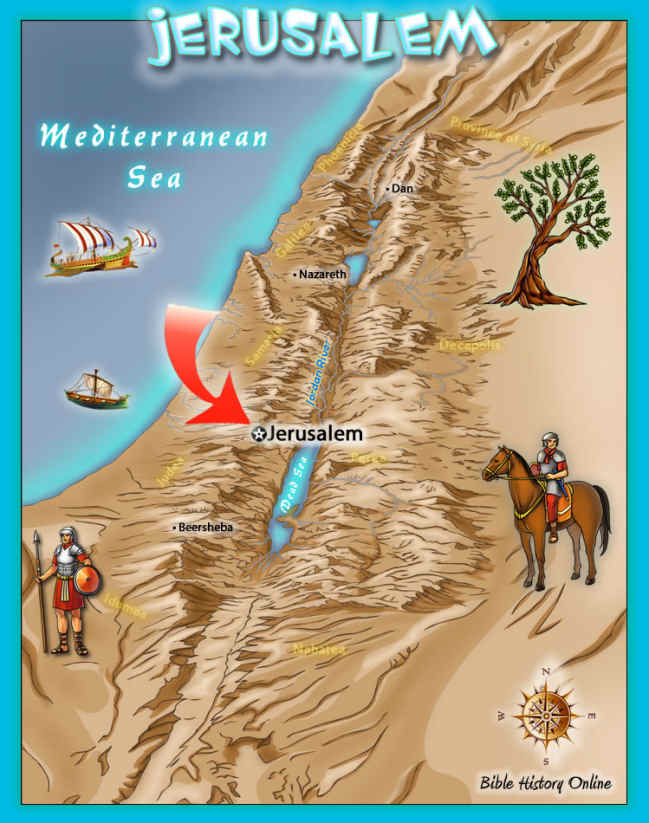+ Blue Letter Bible/KJV + 개역한글 성경구절
글 수 8
2024.5.21 05:21:46

▶ 이방인 Gentiles.
A name commonly used in scripture to denote any and every nation except Israel. At times, when Israel as a people is referred to, the same words are used for them. Thus
1. goi, γοι, ἔθνος, 민족 이교도 is translated 'nation,' and refers to the Jewish nation. Deut. 26:5; Luke 7:5; John 11:48. In the plural the same words refer to the nations generally in distinction from Israel, and are translated 'nations,' 'Gentiles,' and 'heathen.' Deut. 18:9; Deut. 32:43; Isa. 60:3; Isa. 62:2; Joel 2:19; Acts 11:1, 18; Acts:13:19; Acts 28:28; etc.
(신26:5 (눅07:5 (요11:48 (신18:9; (신32:43; (사60:3; 나라 (사62:2; (욜02:19; (행11:1, 18; (행13:19; (행28:28
2. Ἕλλην (in plural) is translated 'Gentiles' in John 7:35; Rom. 2:9, 10; Rom. 3:9; 1 Cor. 10:32; 1 Cor. 12:13, in contrast to the Jews; but would be better translated 'Greeks,' as it is in most places.
(요07:35; (롬02:9 헬라인, 10; (롬03:9; (고전10:32; (고전12:13
God had raised a wall between the Jews and the Gentiles, which in Christ's death was broken down for believers, "to make in himself of twain one new man." Eph. 2:14. "There is neither Jew nor Greek . . . . for ye are all one in Christ Jesus." Gal. 3:28. This does not touch unbelieving Jews and Gentiles, who are kept separate in God's present and future dealings. (엡2:14 (갈03:28
--- Morrish Bible Dictionary
개역한글KHRV( 120일1독, 1년1독, 권별, 성경통독 )
STUDY - 구절(WESLEY), 단락(MATTHEW), 읽기(Wayne),
Dictionary - Chapter, OT구약, NT신약, 테마별,
(*.117.204.3)
|
.
성경연대표
1.창조
2.족장
3.출애굽
4.광야
5.정복
6.사사
7.통일왕국
8.분열왕국
9.포로
10.포로귀환
11.중간
12.예수
13.초대교회
14.세계선교
관련그림.지도 1.창조
2.족장
3.출애굽
4.광야
5.정복
6.사사
7.통일왕국
8.분열왕국
9.포로
10.포로귀환
11.중간
12.예수
13.초대교회 Ani
1창세기[Genesis] 2출애굽기[Exodus] 3레위기[Leviticus] 4민수기[Numbers] 5신명기[Deuteronomy] 6여호수아[Joshua] 7사사기[Judges] 8룻기[Ruth] 9사무엘상[I Samuel] 10사무엘하[II Samuel] 11열왕기상[I Kings] 12열왕기하[II Kings] 13역대상[I Chronicles] 14역대하[II Chronicles] 15에스라[Ezra] 16느헤미아[Nehemiah] 17에스더[Esther] 18욥기[Job] 19시편[Psalms] 20잠언[Proverbs] 21전도서[Ecclesiastes] 22아가[Song of Solomon] 23이사야[Isaiah] 24예레미야[Jeremiah] 5예레미아애가[Lamentations] 26에스겔[Ezekiel] 27다니엘[Daniel] 28호세아[Hosea] 29요엘[Joel] 30아모스[Amos] 31오바댜[Obadiah] 32요나[Jonah] 33미가[Micah] 34나훔[Nahum] 35하박국[Habakkuk] 36스바냐[Zephaniah] 37학개[Haggai] 38스가랴[Zechariah] 39말라기[Malachi] 40마태복음[Matthew] 41마가복음[Mark] 42누가복음[Luke] 43요한복음[John] 44사도행전[Acts] 45로마서[Romans] 46고린도전서[I Corinthians] 47고린도후서[II Corinthians] 48갈라디아서[Galatians] 49에베소서[Ephesians] 50빌립보서[Philippians] 51골로새서[Colossians] 52데살로니가전서[I Thessalonian] 53데살로니가후서[2 Thessalonian] 54디모데전서[I Timothy] 55디모데후서[II Timothy] 56디도서[Titus] 57빌레몬서[Philemon] 58히브리서[Hebrews] 59야고보서[James] 60베드로전서[I Peter] 61베드로후서[II Peter] 62요한일서[I John] 63요한이서[II John] 64요한삼서[III John] 65유다서[Jude] 66요한계시록[Revelation]

 , 성경권별
, 성경권별 

